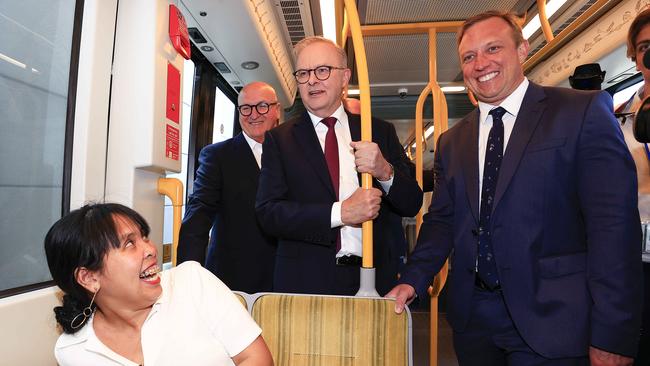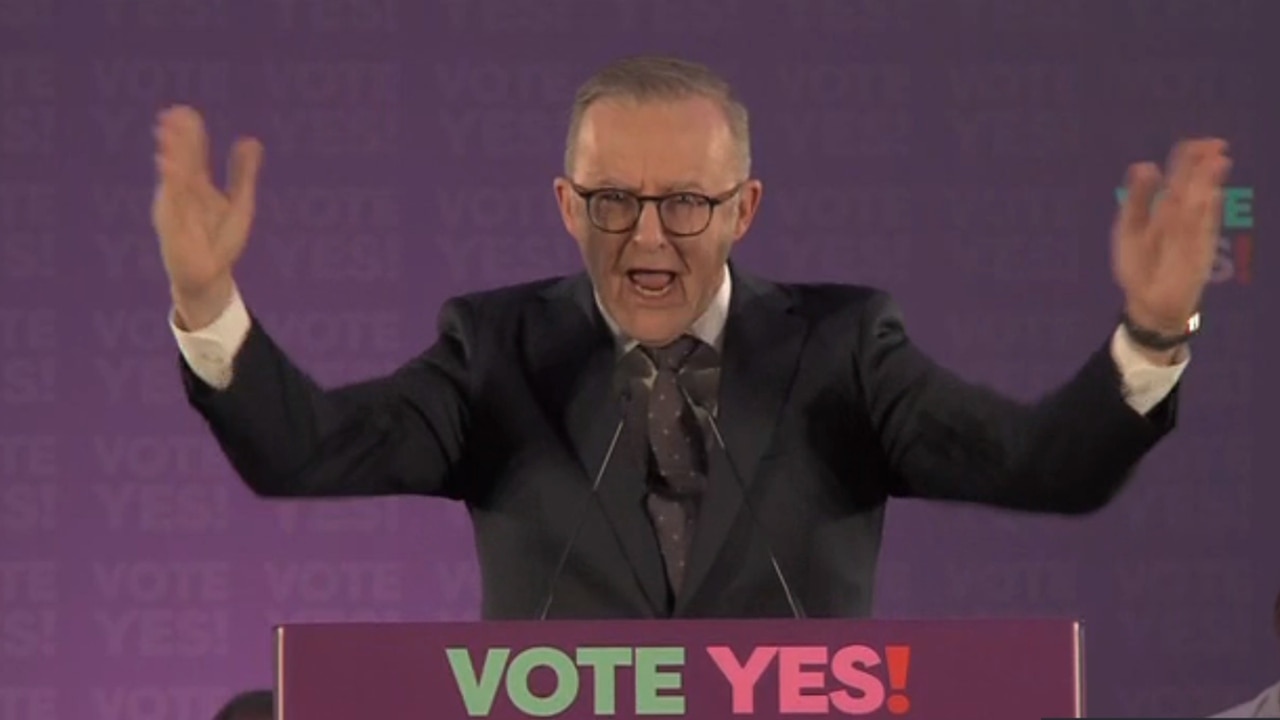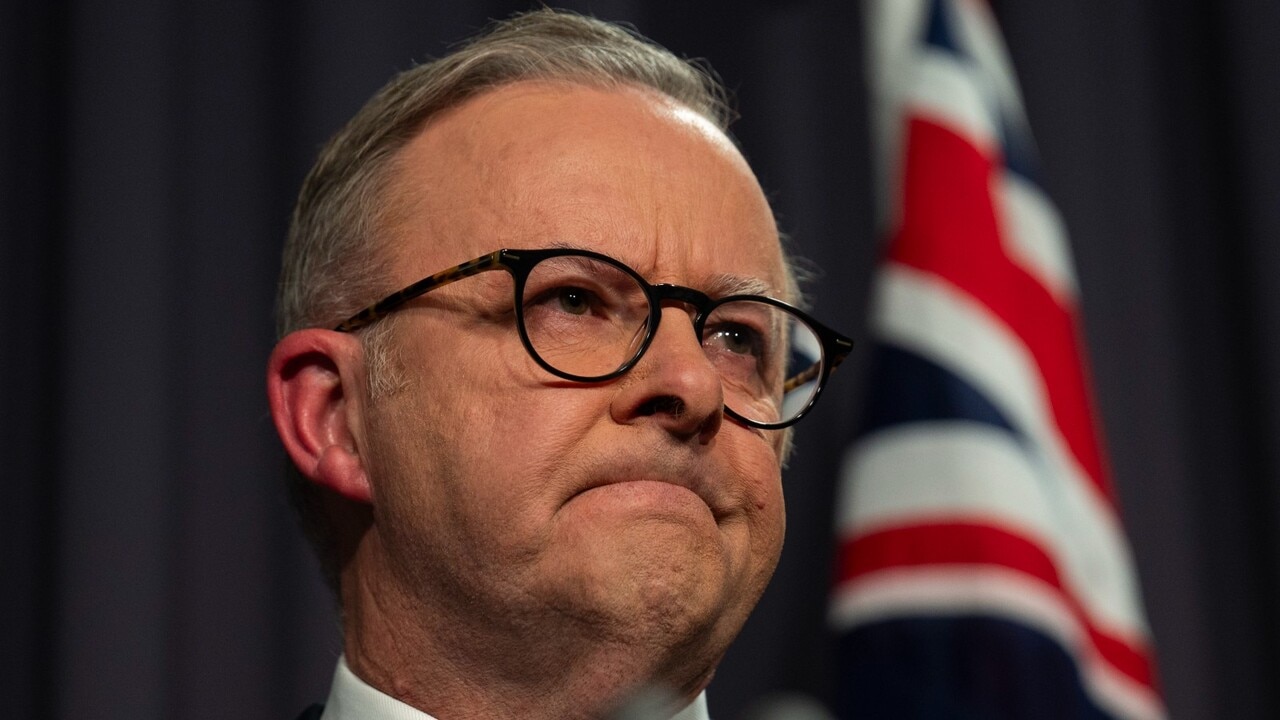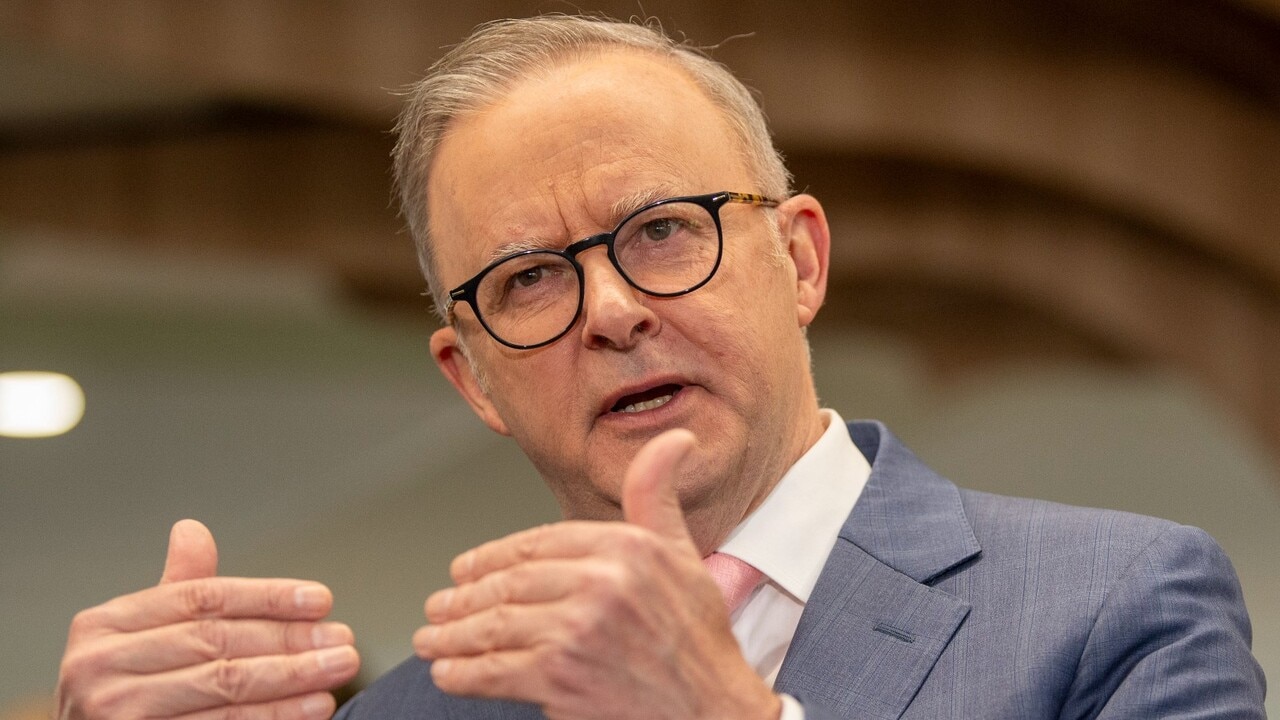Anthony Albanese voices not a word of regret over failed Indigenous referendum a year on
Anthony Albanese has expressed no regret for holding the failed voice referendum one year ago, as he was criticised by Yes and No campaigners for a lack of leadership on Indigenous affairs.

Anthony Albanese has expressed no regret for holding the failed voice referendum one year ago, as he was criticised by Yes and No campaigners for a lack of leadership on Indigenous affairs and producing no clear plan to address disadvantages faced by Aboriginal and Torres Strait Islander people.
The Prime Minister didn’t issue a formal statement to mark the 12-month anniversary of the referendum – which was voted down by 60 per cent of Australians – but defended his government’s record on delivering “a number of measures for practical reconciliation” while campaigning alongside Queensland Premier Steven Miles on the Gold Coast.
He also used the opportunity to take a swipe at Peter Dutton for suggesting he would hold a second referendum on constitutional recognition, which the Opposition Leader later backed away from.
“It (the voice referendum) was a disappointing result,” Mr Albanese said. “I accepted the gracious invitation of Indigenous Australians that they made in 2017 – a request to walk with them in the Uluru Statement from the Heart. They determined in 2017 that they wanted a constitutionally recognised voice because of their experience where ATSIC and previous bodies had been abolished with the stroke of a pen.

“We’ll continue to engage directly with Indigenous Australians. I’ve done that … The major festival that’s held each year at Garma, I’ve attended now multiple times, including every year since I’ve been Labor leader, but before then as well. And I’ll continue to engage to make sure that we can do better when it comes to closing the gap, because governments of all persuasions have not done well enough up to now.”
As Indigenous Australians Minister Malarndirri McCarthy urged the Coalition to restart the reconciliation process with the government, prominent leaders of the voice referendum demanded stronger action on what they acknowledged was a sad anniversary.
Sean Gordon, a member of the Prime Minister’s referendum working group and a Liberals for Yes co-convener, said he wasn’t expecting Mr Albanese to mark the one-year anniversary because his government had “run away” from its commitment to the Uluru Statement from the Heart in full – which called for a voice and Makarrata Commission to oversee treaty-making and truth-telling.
Mr Gordon was not satisfied with the Albanese government’s leadership on Indigenous affairs 12 months on from the referendum but also lashed the Coalition for “threatening everything the government puts in place”.
“There’s no clear way forward in regards to what it is the government has committed to in Indigenous affairs,” he said.

“They’ve ended up with, again, a safe option – the safe option of putting forward the Coalition of Peaks organisations as a voice representative to local Aboriginal communities.
“To suggest the Aboriginal peak organisations speak for local Aboriginal people is just ludicrous. These are service delivery organisations funded to provide a service to address the disparity gap of Indigenous people. They are not the voice, nor are they the local voice for Aboriginal people. This is the voice the Albanese government has adopted.”
Mr Gordon – who has been pushing for the Empowered Communities model to become an independent, non-legislated voice – said the government should be investing in local and regional voices so communities could take ownership of the challenges they confronted through a co-ordinated, collaborative structure.
Fellow Liberals for Yes co-convener Kate Carnell had anticipated Mr Albanese would make a statement 12 months after the failed referendum but acknowledged it was a “really difficult outcome” for him.
“I think they thought they’d win. From where I sat in Liberals for Yes, it was a pretty dreadful campaign,” said Ms Carnell, a former ACT chief minister.
“There was a lot of rah-rah events speaking to the converted. That’s not how you win a campaign.
“It’s a sad anniversary. It was a very sad event in Australian history but, equally, it happened, so now it’s important for a plan to go forward. I fully appreciate the Indigenous people who were part of the Yes campaign, they just wanted a break to recoup.
“It’s now incumbent upon leaders generally – but particularly government and opposition, everybody – to sit down together and have a plan on what to do.

“Just closing the gap, we’re not very good at that, we should keep trying but I think it needs a real plan. Maybe it’s sort of a national cabinet-type thing where states and the federal government and maybe the opposition as well determine what together we do.”
Human rights advocate Hannah McGlade said while the Albanese government seemed determined to avoid making Indigenous affairs a divisive issue at the next election, which is due by May, that meant many of those issues were being left unaddressed.
“I understand why they don’t want any more acrimony or division or racial tensions, but at the same time Indigenous affairs is losing focus and regressing,” Dr McGlade said.
“They’re committed to closing the gap but we know they’re not holding states to account for their failure to work in genuine partnership with Indigenous peoples.”
Dr McGlade said Indigenous justice in particular was going backwards, with the Northern Territory talking about lowering the age of criminal responsibility and Western Australia continuing to keep children inside part of a men’s maximum-security prison despite the death of an Aboriginal boy inside the facility.
“As a child’s rights advocate of many decades, I’ve never seen it this bad. And the federal government is not showing leadership in the Indigenous justice area,” she said.
The Prime Minister’s low profile in Indigenous affairs since the referendum defeat had not helped the healing of Aboriginal people and she wanted Mr Albanese to show that he “has our back in a meaningful way”.
“He announced the commitment to voice, treaty, truth on the night of his election win, and we had a lot of faith in his leadership. But on reflection we think there were real errors in the campaign,” Dr McGlade said.
“To this day most people still don’t know what the voice even meant yet we still went to a vote on it. It doesn’t feel like he led this process with the diligence that was required.”
Warren Mundine, a leading No campaigner with opposition Indigenous Australians spokeswoman Jacinta Nampijinpa Price, said the Prime Minister had failed to stand up in the year since the referendum’s defeat.
“He has just abandoned Indigenous affairs. He has done nothing since, nothing,” Mr Mundine said.
He said Mr Albanese’s silence since the vote would have only added to the pain being felt among those in the Indigenous community who drove the Yes campaign.
“We went through hell with that campaign, it divided the nation, people on both sides were abused and attacked, and now we just forget about it? Let’s bring the nation back together and start doing things. But the leadership right now is just bereft,” he said.
A former ALP national president, Mr Mundine said the Prime Minister should have been ready to use the anniversary of the referendum to announce a new path forward on Indigenous issues.
“That should have been all prepared, policies ready to go, and make the announcement today,” he said.
Greens-turned-independent senator Lidia Thorpe, a member of the Blak Sovereign Movement, said truth-telling and treaty remained “vital steps” towards justice for Indigenous Australians and healing for the country.
“The truth of this country remains hidden and our resistance against colonial oppression continues. Through truth-telling and treaty, we can confront injustices to transform, heal, reconcile and thrive together,” Senator Thorpe said.






To join the conversation, please log in. Don't have an account? Register
Join the conversation, you are commenting as Logout